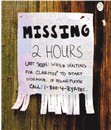Vol. 7, No. 4: April 2008 – EXECUTIVE SUMMARY
Welcome to this issue of Pharma Marketing News. Subscribe Now to get the current and future issues FREE!
CONTENTS
- DTC Risk Communication
- Building a Blockbuster
- Guerilla Pharma Marketing
- Reporting Gifts to Physicians
Article Summaries
DTC Risk Communication
 Is More or Less Needed?
Is More or Less Needed?
The withdrawal of Vioxx from the market and safety concerns about other Rx drugs has ushered in a new era of benefit-risk analysis for brand name drugs.
The FDA, for example, has a new mandate to review and communicate drug risks and in March, it hosted the inaugural meeting of its Risk Communication Advisory Committee, which is designed to counsel the agency on how to strengthen the communication of risks and benefits of FDA-regulated products to the public.
With all the new attention being paid to drug risks, it is time to take a look at the issues surrounding drug risk communication to consumers and patients. Pharmaceutical marketers need to understand these issues to better communicate risk and build trust in their brands.
This article presents highlights from a panel discussion entitled “Communicating Risk: Key Issues at Hand” that took place during a recent industry marketing conference. This panel considered several issues, including:
- Clarifying what is meant by risk
- Pharma’s responsibility to communicate risk under the “learned intermediary doctrine”
- FDA’s emergibg risk communications program
- The concept of hazard vs. risk and its relationship to risk communication
- New ideas for communicating risk
Order and pay for this reprint now using your credit card…
ONLY $6.95Download PDF file immediately after paying:

Networking Dinner Reception
June 4, 2008 :: Princeton Marriott :: 6-9:30 PM
You must get out there and network if you expect to keep your job, keep your current clients, find new clients, and generally CREATE opportunities rather than wait for them to come to you! That is why Pharma Marketing Network is AGAIN hosting a networking event for pharmaceutical marketing professionals.
We expect this year’s event to be as, if not more, successful as the previous gathering of over 100 people.
Registration * Agenda * Sponsorship Information * Menu
Building a Blockbuster
 Moving Towards a New Service Model
Moving Towards a New Service Model
Blockbusters are a dying breed. There are many reasons for this but your next drug can still be a blockbuster, says Jonathan Kay, President, US Portfolio, TNS Healthcare.
TNS research suggests that you can enhance your chances by developing a customer-driven approach that focuses more on building relationships with physicians than does the traditional detailing model.
In this article, Kay and Andrew Brana, Senior Global Consultant, Sales Force Optimization, TNS Healthcare, present results from a February, 2008, survey of primary care physicians in the US and 5 European countries. The results provide answers to the following questions:
- What experiences do physicians value the most in their relationship with a drug company?
- Have physicians seen changes in services provided by pharmaceutical companies? If so, what changes and to what extent?
- How do physicians rate the major pharmaceutical sales forces on delivering the types of experiences and services that they want?
> Order and pay for this reprint now using your credit card…
ONLY $9.95Download PDF file immediately after paying:
Guerilla Pharma Marketing
 Generates Buzz, But What About Sales?
Generates Buzz, But What About Sales?
Guerrilla marketing has been known to close down a whole city (Boston) and thereby draw tremendous media attention to the brand being promoted. But is this a tactic that is appropriate for pharmaceutcal products?
Apparently, the drug industry (Ie, McNeil) is experimenting with a gentler, less aggressive form of guerilla marketing and once again Boston is a primary target!
The ads have drawn a lot of attention in the Pharma Blogosphere, but questions remain, including:
- Is it legal?
- Is it effective?
- What’s the role of PR and blogger buzz?
- Can it work without also doing more traditional print and TV advertising?
Order and pay for this reprint now using your credit card…
ONLY $6.95Download PDF file immediately after paying:
Reporting Gifts to Physicians
 A Few Dark Clouds Obscure the Sunshine
A Few Dark Clouds Obscure the Sunshine
On April 19, 2008, the Massachusetts state Senate unanimously approved a first-in-the-nation law banning all gifts to physicians from pharmaceutical companies. Several other states have put limits on gifts as well.
In March, 2008, the Physician Sunshine Act was introduced in the Senate. This is a companion act to a similar House bill introduced in 2007. The bills would require pharmaceutical companies to publicly report on their web sites all grants, meals and payments over $25 invlaue made to physicians.
Several pharma marketing experts and PhRMA have suggested that this and similar bills are redundant, would expose proprietary information, and are too onerous.
This article reviews some aspects of these “sunshine” laws and focuses on a recent CALPIRG analysis of drug company gifts to physicians. Topics covered include:
- Are these laws overly onerous?
- Do state sunshine laws achieve their stated goals?
- How well do pharmaceutical companies comply with the California law that codified the PhRMA code on gifts to physicians?
- What spending limits have companies adopted in Claifornia and how have these limits changed since the California law went into effect in 2005?
Order and pay for this reprint now using your credit card…
ONLY $9.95Download PDF file immediately after paying:




![6 Digital Tools at the Center of Healthcare Digitalization [INFOGRAPHIC]](http://ec2-54-175-84-28.compute-1.amazonaws.com/pharma-mkting.com/wp-content/uploads/2021/04/6DigitalTools_600px-218x150.jpg)




![6 Digital Tools at the Center of Healthcare Digitalization [INFOGRAPHIC]](http://ec2-54-175-84-28.compute-1.amazonaws.com/pharma-mkting.com/wp-content/uploads/2021/04/6DigitalTools_600px-100x70.jpg)




